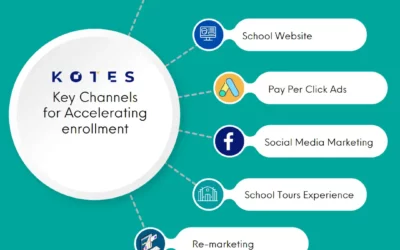
Introduction
Engaging with the parents of preschool children is important for promoting the development and well-being of young children. This approach is crucial to a child’s success in school and in life.
Here are 7 important tips for engaging with parents of preschool children:
1. Welcoming Environment
Make parents feel welcome in the classroom and school by greeting them warmly and asking them about their day and showing interest in their child’s development. This should be followed by inviting them to participate in activities and showing appreciation for their involvement. Establishing positive relationships with parents is key to engaging with the parents of preschool children.
Best Practices:
- Providing them with a parent information handbook.
- Celebrating a dedicated Parents participation day.
- Judicious use of technology, through website and blogs.
2. Communicate Regularly
Regular communication with parents is essential to keep them informed about their child’s progress, as well as any concerns or issues. You can communicate through a variety of channels, such as phone calls, emails, newsletters, or parent-teacher conferences.
Best Practices:
- Communicate visually how their children are faring (videos).
- Use of Newsletters and knowledge material, WhatsApp group channel.
- Judicious use of technology, through website and blogs.
3. Encourage Parental Involvement
Encourage parents to get involved in their child’s learning and development by providing opportunities for them to participate in classroom activities, volunteering, or attending school events. Best of all, involving them and helping them with homework (project work) by providing some inputs would be a great help.
Best Practices:
- Involving parents in child’s learning from home or volunteering.
- Involve them in classroom activities like projects, tours, culture training etc.
- Conducting events and involving parents in them.
4. Provide Resources
Share resources with parents, such as books, articles, or websites that provide tips and ideas for supporting their child’s learning at home. Also offer parents information about early childhood development, parenting tips, and community programs and services that may be helpful to them and their child.
Best Practices:
- Pointing parents to educational aids such as articles, books and online resources. Teachers can provide assessment tools such as quizzes, tests, and assignments to evaluate their students’ understanding and provide feedback.
- Teachers can provide writing and drawing materials such as pencils, crayons, markers, and paper to encourage students to express themselves and develop their creativity.
- Teachers can provide emotional support resources such as counseling services, peer support groups, and mindfulness exercises to help students cope with stress, anxiety, and other emotional challenges.
5. Celebrate Achievements
Celebrate the achievements of both the child and the parents. For example, recognize when a child reaches a new milestone or when a parent goes out of their way to support their child’s learning.
Best Practices:
- Share children’s achievements on social media platforms or class newsletters, with parents’ consent. This way, parents can see what their child is learning and share in their achievements.
- Create a display board to showcase the children’s achievements, such as their artwork, writing, or photos. Encourage parents to visit the classroom and see their child’s work.
- Host a celebration to recognize the children’s achievements, such as a party or ceremony. Involve parents by inviting them to attend and participate in the celebration.
- Create certificates or awards to recognize the children’s achievements, such as a certificate for completing a challenging task or an award for demonstrating positive behavior. Present the certificates or awards in front of parents or in a special ceremony.
6. Create Partnerships
Work together with parents as partners in their child’s education. Listen to their concerns and ideas and collaborate to find solutions. Also, show that you value their input. This will help build trust and a collaborative relationship between parents and teachers.
.
Best Practices:
- Parent-Teacher Associations.
- Expert counselling Sessions.
- Open House programs.
7. Support Diversity
Acknowledge and celebrate the diversity of families in the classroom, and make sure that all families feel included and valued. Respect parents’ cultural beliefs and practices and strive to create an inclusive and welcoming environment for all families.
.
Best Practices:
- If possible, conduct cross-cultural events.
- It would be a great way to place multi-cultural story time and book reading sessions.
- If possible, celebrating festivals of different cultural groups.
Overall, engaging with the parents of preschool children requires building positive relationships, effective communication, providing resources, encouraging parental involvement, active listening, and showing respect for all families.
Follow Us
We are a full-service digital marketing company. Follow us on:







